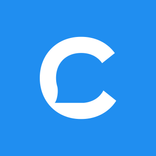
Meet the faces behind Chatfuel: episode #3 with our product designer
In our interview series, we introduce you to the people behind Chatfuel who make things happen.
The easiest and most intuitive chatbot solution out there, straight-forward approach and simple interface, best for non-techie people to start building their bots, easy to use—it’s just a small portion of what you write about Chatfuel across reviews platforms. We are jubilant and rejoice in this feedback, as that's exactly what we want for you—to be able to automate effortlessly.
So, here's a shoutout to the person who makes your journey with Chatfuel enjoyable and flawless—our Product Designer, Nick.
In his interview, Nick shares his experiences as a product designer at Chatfuel, discusses key product design challenges and his approach to addressing them, and offers tips on communicating with the team and maintaining work-life balance. Let's dive right in!

- What's it like being a product designer at Chatfuel?
Sometimes, I feel like a cool paratrooper, zipping from one project to the next while I’m expected to quickly comprehend tasks and complete them efficiently. Once in a while, it’s hard to clear my mind and switch from projects I've wrapped up, but the kudos I get totally make it worth it. In a nutshell, it's a pretty dynamic role.
- What are the primary challenges in product design today, and how do you tackle them?
First off, simply creating a well-functioning product is not enough anymore. It's also necessary to build an emotional connection with customers. While faceless corporate systems may excel in functionality, loyalty is won by those who have a recognizable style, tone of voice, and engaging communication. The products we often consider cool always offer a little extra something: fun animation when a user finishes a task, a sweet card from the person who packed your order, or a real, heartfelt “sorry” when something goes wrong. Caring and showing care for the customers is the key to getting people to remember you and come back for more.
Next up, I observe the evolution of AI and the fluctuating hype around it and identify practical, real-world benefits it may offer. I'm also all ears when it comes to discussion of legal norms in the AI field. This could potentially cause an increase in the cost of human labor and, contrary to predictions of widespread job losses, could actually reinforce the role of the designer.
- What features of Chatfuel do you think are the most unique and appealing to users?
Besides the functionality, it’s definitely our rockstar support team. Plus, we're making great strides in branding and communication lately. We’re also almost done with some technical improvements getting in the way of us doing awesome stuff, and I'm pretty pumped about all the exciting things we’re about to do.
- What principles do you follow when interacting with other team members?
The first and most important rule is to fulfill your commitments by the specified deadline. If I’m falling behind, I make sure to give a heads-up in advance.
The second point is to not be scared to have a discussion. We're all here to do our best and figure out the best way forward, right? So, we must look at the problem we’re trying to solve from every angle and talk it out.
The third is to show appreciation to your teammates for their help and good work.
- How do you keep growing in your career? Any tips for staying in the loop with the latest industry trends and approaches?
Product design and its levels have become such vague concepts that the criteria for professional advancement are similarly unclear. If you were to ask ten different companies why they need product designers and how the responsibilities vary between levels, you'd end up with a confusing mix of responses.
First, I aim to expand my expertise horizontally and acquire more related skills. For example, to be able to spot the difference between good and not-so-good UI text and suggest ways to make it better, come up with an idea of how things can be put together in layout or data architecture, or run user tests.
Secondly, I observe the digital products I use daily, noting their direction and the engaging mechanics they employ. I particularly enjoy dissecting products that irritate me to understand what exactly might have gone wrong and how it could have been avoided.
And thirdly, I'm keeping an eye out for the emergence of fundamentally new user interfaces and their practical implications in helping people solve their daily tasks.
- How do you manage your resources, hobbies, and work-life balance amidst a busy schedule? Any particular strategy for energy replenishment?
My recipe for balance includes therapy, large personal projects, friendships, and sports. It's all about discipline, making sure I don't slack off in any part of my life. Since motivation can fluctuate, it's super important to be able to give myself that extra nudge to hit the gym, shut the laptop after work, and go out for an art show. I remind myself that chill time is a must if I want to stay productive.
- How do you interpret corporate values, and how do they influence your day-to-day work?
I'm not particularly interested in slogans, what really gets me going is their practical implications. Can I do my job and pursue my ambitions? Are the team's goals clear and do their their actions align? Am I getting a fair shake for my work and do I feel supported? So, unless the slogans aren’t telling us to do bad stuff, they don't bother me one bit.
- What excites you the most about our company?
My teammates.
- What advice would you give new hires for a smoother integration into our company culture?
Remain true to yourself, keep an open mind, try to have fun, and always do your best.
That's a wrap on our chat with Nick, but we have more interviews lined up with other members of the Chatfuel team, each ready to share their unique insights and experiences. Stay tuned for the next episode of our interview series!
